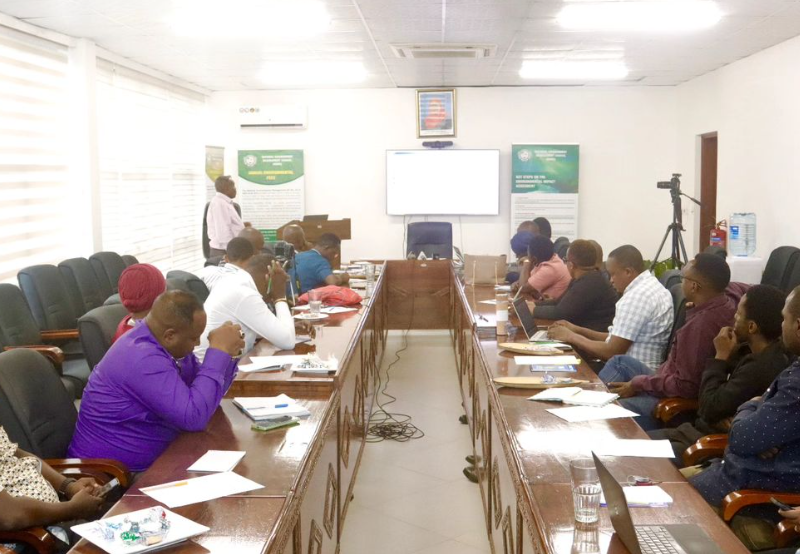Dar es Salaam. The National Environment Management Council (NEMC) has cited a lack of understanding of legal requirements among investors as a primary reason for delays in obtaining Environmental Impact Assessment (EIA) certificates for their projects.
EIA Manager at NEMC Jamal Baruti made these remarks during a one-day training session held in Dar es Salaam, aimed at educating journalists on various issues related to environmental as part of public awareness campaigns.
Baruti explained that both investors and various stakeholders, including consultants and the general public, often lack awareness of the necessary legal requirements, leading to prolonged EIA processes. This insufficient understanding stretches across multiple parties involved, which slows down project approvals and impacts compliance.
“You find someone has already taken out a loan for a project, or, for instance, machines have already been ordered and are at the port, and that’s when they come to us to request EIA certificates. Some projects proceed smoothly, but others experience delays in obtaining certificates, which could have been avoided if they had sought advice earlier,” he said.
He further emphasized that some investors begin the EIA process late in their investment timeline, often only after securing loans or other necessary permits. By that stage, their projects are already well advanced, and they push for a quick turnaround.
This results in misalignment between the investment schedule and the regulatory processes, making it difficult for the National Environment Management Council to meet their demands.

“Some investors rush to get an EIA certificate to access other government services such as investment permits after securing loans and investment sites. When they face delays, they push us for a quick turnaround without meeting the required criteria,” Baruti said.
The terms of reference submitted for EIA approval often fail to meet the required standards, Baruti added, which forces NEMC to send them back for revisions.
This back-and-forth is often necessary because insufficient or incorrect information from consultants complicates the process, which is sometimes perceived as harassment by the investors, even though it is a matter of legal compliance.
“Inadequate or substandard EIA reports that fail to meet the necessary criteria are returned for improvements, contributing to delays,” Baruti noted. He also mentioned that many reports lack professional data and technical information, which are critical for proper evaluation.
Baruti reiterated that delays caused by both investors and consultants themselves further slow the process. These delays are sometimes the result of incomplete or incorrect documentation, which needs to be rectified to comply with legal standards.
He also highlighted the importance of classifying the positive and negative impacts of projects to ensure they benefit local citizens while addressing potential challenges. Proper planning and land use, he stressed, are crucial for sustainable investment, and building institutional capacity is necessary for effective environmental management.



Keep this going please, great job!
https://www.vaca-ps.org/blogs/271536/1xBet-Promo-Code-1XBONUS130-Get-Free-Bonus-130
Good day! Do you use Twitter? I’d like to follow you if that would be ok. I’m undoubtedly enjoying your blog and look forward to new updates.
https://atlantic-club.com.ua/ot-vybora-stekla-do-ego-ustanovki-vse-o-fare-vashego-avtomobilya
Simply want to say your article is as astonishing. The clearness in your post is just great and i can assume you are an expert on this subject. Well with your permission allow me to grab your RSS feed to keep up to date with forthcoming post. Thanks a million and please keep up the enjoyable work.
https://nemovlya.com.ua/kak-vybrat-korpus-fary-i-steklo-dlya-avto-sovety-ot-ekspertov
Thanks for the good writeup. It in truth used to be a leisure account it. Glance complicated to more introduced agreeable from you! By the way, how can we be in contact?
https://kirovrada.dp.ua/remont-far-bmw-yak-obraty-pravylne-sklo-dlya-vashoho-avto
Hmm is anyone else experiencing problems with the pictures on this blog loading? I’m trying to find out if its a problem on my end or if it’s the blog. Any feed-back would be greatly appreciated.
https://summer-kino.com.ua/germetik-dlya-avtofar-problemy-s-germetizaciej
Amazing! Its genuinely amazing paragraph, I have got much clear idea regarding from this article.
https://atlantic-club.com.ua/perevagy-vykorystannya-bi-led-linz-efektyvnist-ta-yaskravist
Hi there to every one, the contents present at this website are really amazing for people knowledge, well, keep up the nice work fellows.
https://umedia.kiev.ua/kak-vybrat-idealnyj-korpus-fary-i-steklo-dlya-vashego-avtomobilya
https://t.me/s/OAllaxTg
I suggest reading this compilation of papers https://t.me/s/OAllaxTg/11
С 2025 года — новые требования в регионах. Рассказываем, где начнут проверять и как подготовиться.
Рксплуатация прицепов РІ сложных условиях